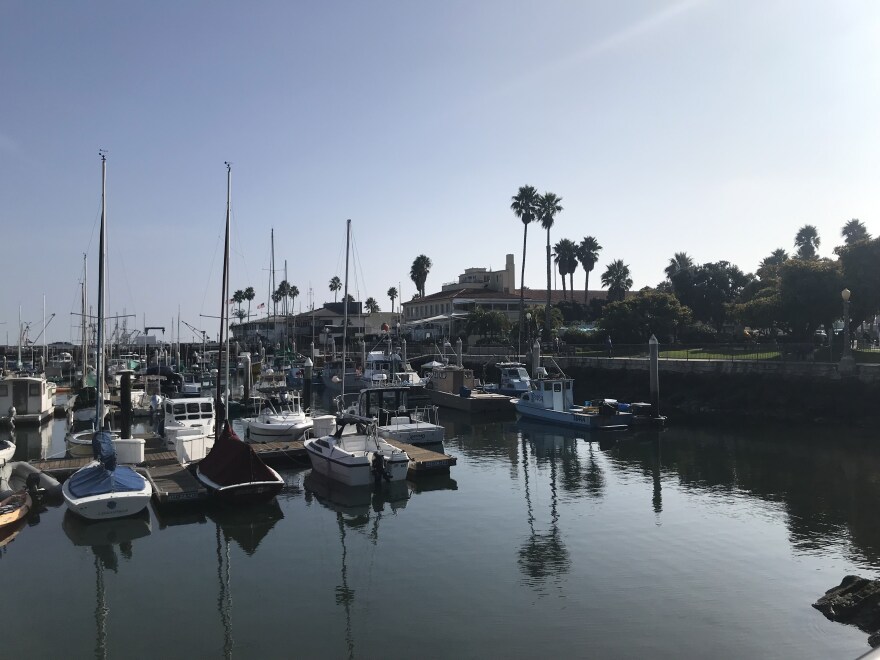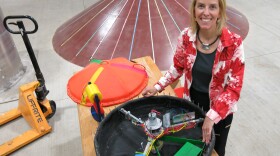Two researchers on the Central Coast have received awards from the National Science Foundation (NSF) Convergence Accelerator program to develop products for the Blue Economy.
The multi-billion-dollar Blue Economy in California includes industries like fishing, shipping, and tourism, and it thrives on technology and data.
“There’s an increasing reliance on sensors that are deployed in the ocean and those sensors give us really important data that we use to make decisions about shipping, national defense, and they give us information about the weather,” UC Santa Barbara marine microbiologist Alyson Santoro said.
Santoro said ocean sensors vary in size, from a few inches to six feet long. They are typically made of plastic and placed on buoys, moorings, or piers to gather information for a variety of industries.
But, she said when the sensors are no longer needed, they are often left at sea.
“Sensors and computer chips and the other components in the sensors are so cheap that it’s now more expensive to go pick up the sensors once they’re done making measurements than it is to just leave them in the ocean,” Santoro said.
In collaboration with a team of scientists and engineers, Santoro received a $700K award from the NSF Convergence Accelerator track to do rapid research on biodegradable plastics for the Blue Economy.
She said existing biodegradable plastics are not designed for the ocean.
“That’s designed to degrade in an industrial composting facility on land which have relatively high temperatures and no oxygen, neither of those conditions really apply to the ocean,” Santoro said.
She wants to develop biomaterials for sensors that break down using the ocean’s naturally existing microbes.
Although marine sensors are a tiny part of the problem when it comes to plastics in our ocean, Santoro said it’s a good place to start.
Further north, at the Monterey Bay Aquarium Research Institute (MBARI), bioengineer Kakani Katija also received a NSF Convergence Accelerator award for the Blue Economy. Her team is using ocean data and artificial intelligence to create community science portals and game-based education programs.
“The game Pokemon Go – I don’t know if you remember, people were wandering around their neighborhoods trying to capture fake animals and that was a global phenomenon. Is there something there that we can learn from and potentially leverage to get people excited about ocean exploration or ocean discovery, because about 50% of animals in the ocean have yet to be discovered or described,” Katija said.
Katija said she wants to bring underwater visual experiences to a broad audience.
“There are nearby or adjacent towns or cities where individuals have never even seen the ocean before, so what we want to do is to create platforms that can help with that engagement regardless of where you are,” she said.
So how does all of this ocean data get from the scientists to the Blue Economy industries that need it?
Henry Ruhl, Director of Central and Northern California Ocean Observing Systems (CeNCOOS), curates the information and makes it available.
“It can be search and rescue operations for the Coast Guard, oil spill response teams, there’s a whole variety of users, and so what we do is try to streamline access to the information for those people,” Ruhl said.
He said emerging technologies make it possible to study all types of data, even marine sounds.
“To count the whale calls, and dolphins and seals and quantify them over time and build records there, too, of what’s happening with marine life,” Ruhl said.
As the Blue Economy prospers in California and on the Central Coast, Ruhl said good data is key to keeping our ocean environment healthy and safe.
Find more information about NSF Convergence Accelerator awards and teams.





